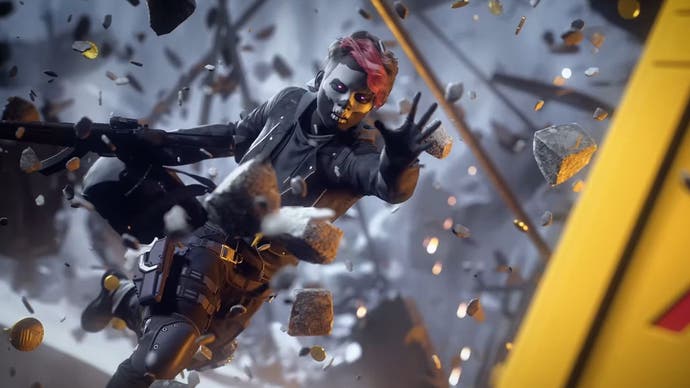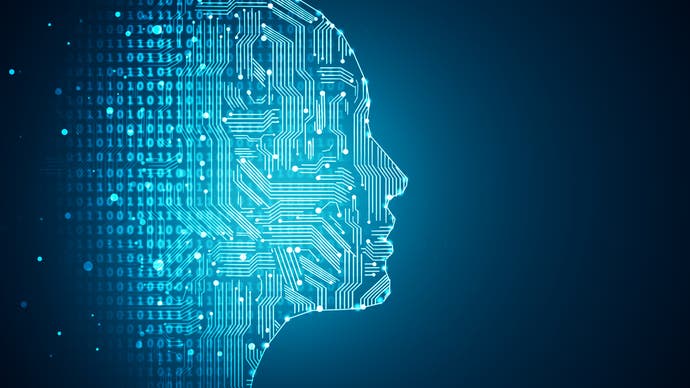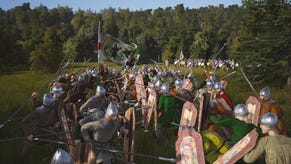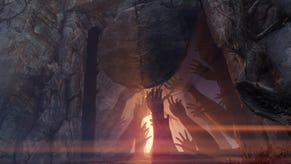AI already used by 62% of studios, Unity report claims
Animation is top usage.
AI may seem like something of a dirty word at the moment, but 62 percent of studios are using AI at some point during game development.
That's according to a new report by game engine maker Unity, which reveals that more and more development studios are adopting AI tools to make time and efficiency savings.
In 2022 the average time to launch for games was 218 days; now it's 304 days, the report states. 71 percent of studios responding to the survey said AI had improved their delivery and operations, to reduce that time to launch.
So what exactly is AI being used for? The number one use of AI is for improving character animations, followed by writing code - or at least speeding up the process. That's closely followed by both generating art and levels, writing and narrative design, and automated playtesting.
A key reason for using AI is to shorten the time spent prototyping. The report states that 68 percent of developers surveyed chose to use AI to speed up prototyping. In 2023, 96 percent of studios spent three months or less prototyping in comparison to 85 percent the year prior when it took longer.
Another area for AI usage is for world building, utilised by 56 percent of AI adopters. Of those, 64 percent used AI to develop NPCs to populate worlds.
This is matched by a further report from Inworld, an AI company that last year partnered with Microsoft to offer AI tools to developers.
According to Inworld, 3-in-4 developers are "excited" about AI NPCs. It reported generative animations and textures are the most likely AI tools to be adopted, followed by AI created NPCs. Almost half of the developers surveyed by Inworld believe over 40 percent of studios will adopt AI NPCs.
On the flip side, are there reasons against using AI? Unity's report states 43 percent of developers surveyed who are hesitant about AI are interested but don't have the time, while 24 percent don't have the technical knowhow. The remainder of respondents either didn't know AI was possible, or didn't know its purpose. Only three percent selected "Other", which may have included more ethical reasoning.
Unity's report is based on data from developers using its engine and tools, as well as a survey from market research firm Cint in 2023 with 300 respondents. It should be noted this survey is likely skewed towards smaller, mobile projects using Unity that may be more likely to implement AI solutions.

The results here from Unity on AI adoption is slightly higher than a recent GDC survey, which surveyed not just developers but workers across the industry. More broadly, then, 31 percent of industry workers used generative AI tools, with 44 percent of those being in business and finance.
From the GDC survey, developers working in narrative, art, and QA were more likely to say AI would have a negative impact on the industry, while workers in business, marketing, and programming were more positive.
It's clear, then, that AI is already widely used across the games industry and that's only set to increase as the cost and time expense of development rises. It's one of the major reasons the industry is suffering layoffs at present.
But will AI completely replace humans? That seems unlikely. As Game Developer recently reported, solutions provider Keywords attempted to make a 2D game relying solely on generative AI tools. The experiment utilised over 400 different tools to see how they might "augment" development.
However, ultimately it found that humans are irreplaceable. "Whilst the project team started small, it identified over 400 tools, evaluating and utilising those with the best potential. Despite this, we ultimately utilised bench resource from seven different game development studios as part of the project, as the tooling was unable to replace talent," said Keywords CEO Bertrand Bodson.
"One of the key learnings was that whilst GenAI may simplify or accelerate certain processes, the best results and quality needed can only be achieved by experts in their field utilising GenAI as a new, powerful tool in their creative process."
Still, it appears that the response to AI is slowly becoming more positive. AI was a major talking point at last year's GDC, with many responding with "reverence and rage" as Eurogamer's Chris Tapsell reported at the time. These recent reports suggest views may be softening.
One area where AI is still viewed particularly negatively is voice acting. Actors are standing up to the rise in AI, especially when used for deepfake mods. It's something both UK actor's union Equity and US union SAG-AFTRA need to stand against to protect the work of actors.
In September 2023 SAG-AFTRA members overwhelmingly voted in favour of a strike and then, at the start of this year, a new AI agreement was introduced, sparking concern among the acting community. A strike against game companies is now likely.
The Finals developer Embark Studios was criticised for its use of AI voice acting in the online shooter, though in a statement it said "making games without actors isn't an end goal for Embark".










